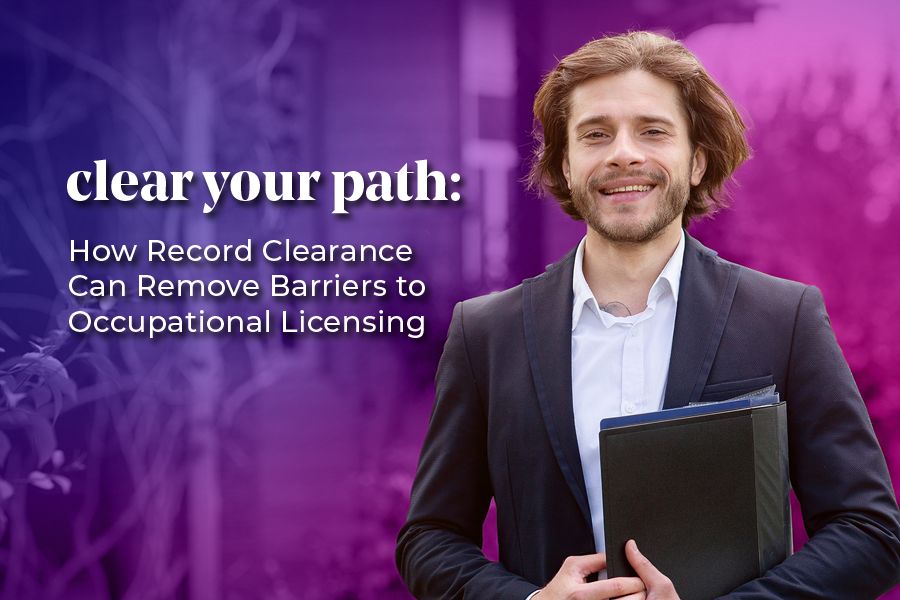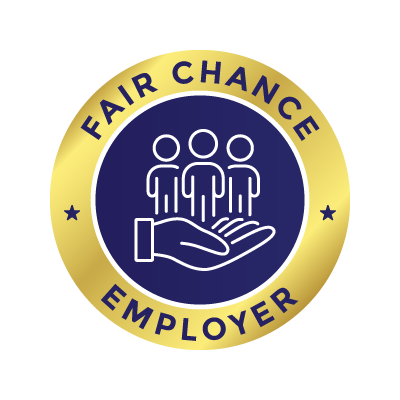Clear Your Path: How Record Clearance Can Remove Barriers to Occupational Licensing
Navigating a career with a criminal record can feel like an uphill battle, especially in fields that require occupational licenses. Many jobs—nursing, social work, real estate, cosmetology, and more—have strict licensing requirements, and for applicants with criminal records, these requirements can be a barrier to entry. Yet, by clearing your record, you can increase your chances of accessing these careers, avoiding unnecessary roadblocks, and setting yourself up for long-term success.
The Hidden Barrier: How Criminal Records Affect Licensing
Occupational licensing boards exist to ensure that professionals meet ethical and competency standards, and to keep the public safe. While this is essential for public trust, it can also mean that individuals with criminal records face automatic denials or additional scrutiny when applying for licenses. Here are a few ways a record can impact your licensing journey:
- Automatic Disqualifications: Some states have laws that allow boards to deny licenses based on criminal history, regardless of the nature of the offense or the time passed since the conviction.
- Discretionary Decisions: Even if your record doesn’t automatically disqualify you from obtaining a license, a board may have the discretion to assess whether your background aligns with their standards, creating uncertainty and delays in the application process.
- Professional Roadblocks: Some professions, particularly those in healthcare, education, and finance, have federal or state mandates that bar individuals with specific types of convictions, even if they are decades old.
Industries Most Impacted by Licensing Restrictions
Certain fields are particularly challenging to enter with a criminal record. For instance:
- Healthcare: Often, healthcare licenses require a clean background, as practitioners have direct access to vulnerable populations. Convictions related to drug offenses, theft, or fraud can be particularly damaging.
- Education and Childcare: Many educational boards prohibit licensing for applicants with criminal records, as these are seen as red flags in positions involving children or young adults.
- Finance and Insurance: A conviction for fraud, theft, or any financial offense can limit opportunities in banking, insurance, and real estate, as these roles require a high level of trust.
- Social Work: Social work licensing boards consider criminal history, particularly convictions that may be seen as incompatible with counseling, therapy, or direct client support.
Why Clearing Your Record Matters
Clearing your record can be life-changing and in many states, can eliminate the barriers a criminal record creates in professional licensing. Here’s why taking this step can help:
- Expanded Job Opportunities: Expunging a criminal record often eliminates the professional licensing barriers created by your criminal history, allowing you to apply on equal footing with other candidates.
- Improved Earning Potential: Many licensed professions offer higher earning potential and better career growth. By clearing your record, you can access these opportunities and improve your long-term financial stability.
- Reduced Stigma: Even if a licensing board considers your past, a clean record makes it easier to demonstrate rehabilitation and commitment to a career, helping you overcome bias and judgment.
Take the First Step Toward Your Career Goals
Having a criminal record can make it difficult to enter a licensed field. Clearing your record can significantly increase your chances of approval and open doors to professions that might otherwise be closed. At Rasa, we’re here to support you through every step, from eligibility checks to completing the legal expungement process.
A clear record is not just about the past; it’s about securing a brighter, more stable future. If you’re ready to overcome the barriers of occupational licensing, start by using our eligibility tool to explore your record clearance options today.




